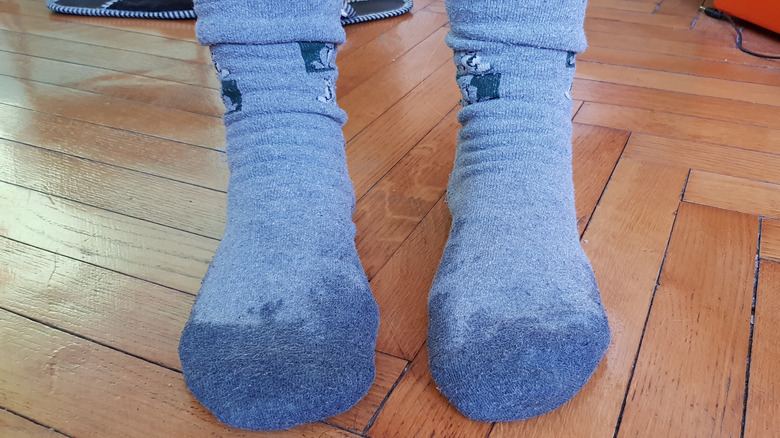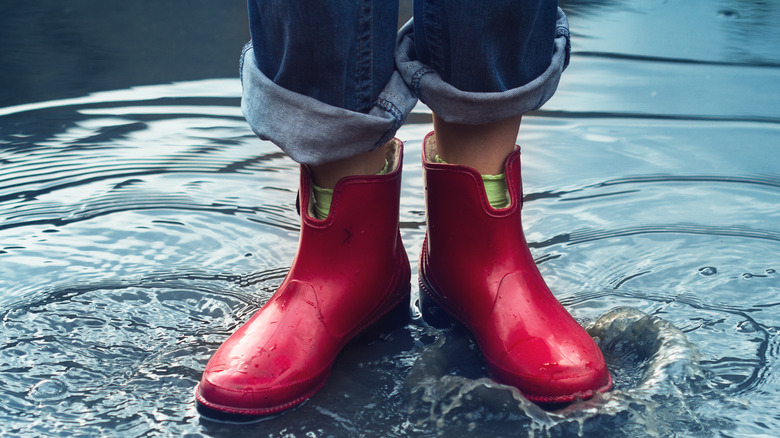Why Staying In Wet Shoes Or Socks Is Worse Than You Think
Whether from cold, rainy weather conditions or from a day spent sweating, remaining in wet socks or shoes for extended periods of time can affect our health in more ways than one. In addition to being uncomfortable, doing so can leave us at risk for a host of different skin conditions.
According to experts at Silverman Ankle & Foot, when moisture seeps into our socks, it can cause additional friction between the sock's material and the skin of our feet which can cause sores or blisters to develop. In addition, wet environments serve as a great home for bacteria. Continuously traipsing around in wet shoes or socks can therefore lead to bacterial or fungal infections, such as Athlete's foot. Not only that, but if one's feet are subjected to wet and cold conditions simultaneously for an extended length of time, frostbite can set in.
Healthline reports that a more serious skin condition, known as trench foot, can also result from prolonged exposure to moisture and can alter the appearance of the skin on our feet.
How to prevent the development of trench foot
Symptoms of trench foot include redness, blisters, blotchiness, and the shedding of dead skin tissue (via Healthline). In addition to affecting the appearance of our feet, the condition can also cause feelings of numbness, tingling, prickliness, itching, and more. Without proper treatment, severe cases of trench foot may cause ulcers, permanent nerve damage, impact one's ability to walk, and may warrant an amputation.
Treatment methods for the condition center around boosting circulation to the affected area, such as through rest and elevation of the foot (per Healthline). In addition, the use of certain pain reliever medications, such as ibuprofen, can reduce pain or swelling.
Experts at Silverman Ankle & Foot encourage individuals to implement preventative measures, such as frequently changing wet socks, avoiding puddles, wearing waterproof shoes, and regularly checking shoes for rips or holes. In addition, the U.S. Centers for Disease Control and Prevention (CDC) advises against wearing socks to bed. Experts suggest treating the affected area with heat packs or by submerging one's feet in water heated between 102 degrees Fahrenheit and 110 degrees for a period of five minutes. If you experience symptoms of trench foot, be sure to seek prompt medical attention.


